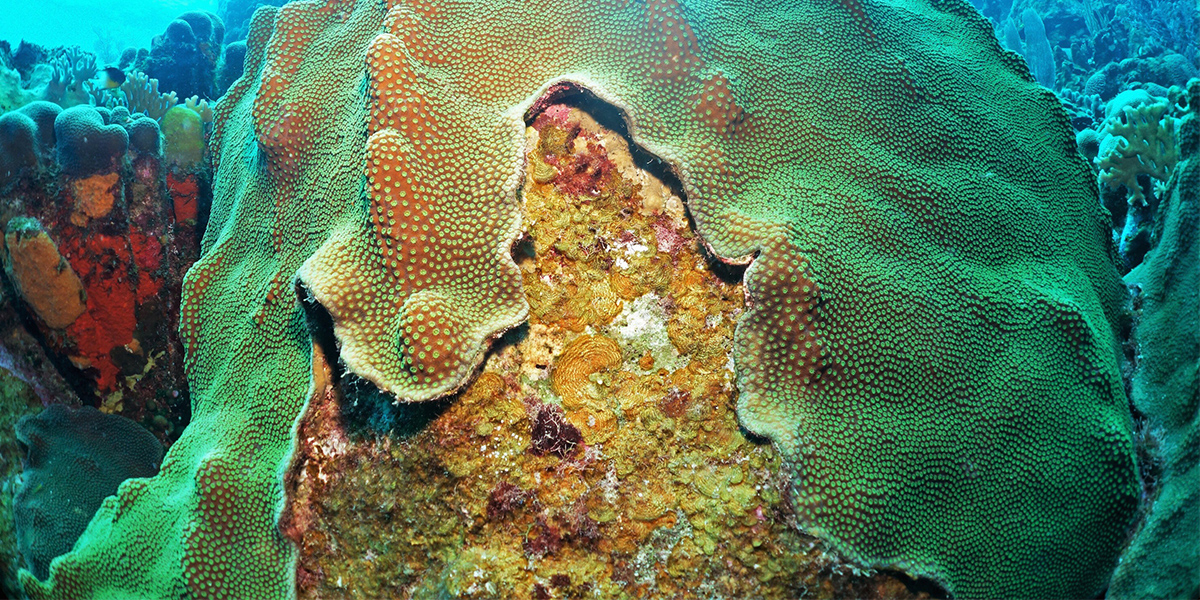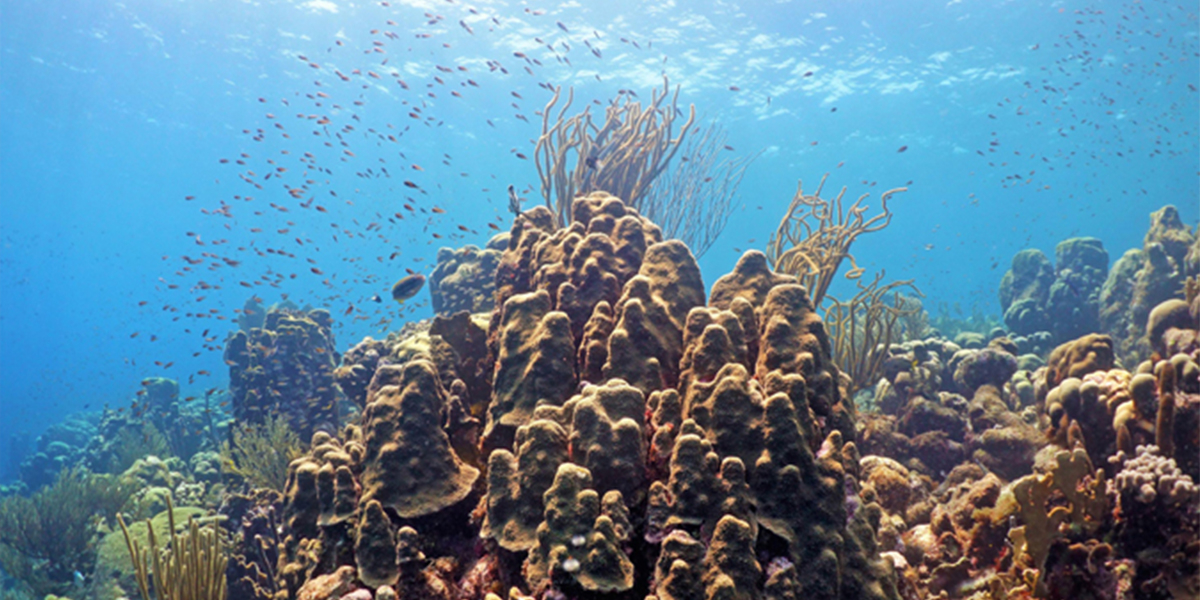Microbes decisive in battle between coral and turf algae

Under stress, many reefs that were formerly dominated by coral are shifting to systems dominated by turf and fleshy algae. A new, recently published study, led by researchers at the University of Hawai‘i (UH) at Mānoa and San Diego State University (SDSU), found that the outcome of the competition between coral and turf algae is determined by the assemblage of microbes at the interface where the contenders meet.
All plants and animals are associated with communities of viruses and microbes—their microbiome—that interact via a suite of chemicals produced by their metabolism, termed metabolites. Co-authors, Milou Arts, PhD student at NIOZ and senior scientists Andi Haas, contributed to the metabolomic analysis of the study which investigated the role of each component, host organisms, viruses, bacteria, and metabolites, in coral–turf algal interactions.

Interface community
“We found that when coral interacts with turf algae on a reef, there is a unique chemical and bacterial community that forms at the interface between these two organisms, an emergent microbiome,” says Ty Roach from the Hawai‘i Institute of Marine Biology and co-lead author of the study. “This interface community is made up of larger bacterial cells that use energy at a faster rate. Our data suggest that this change in bacterial size and energy use, which can negatively affect coral, is driven by a change in which types of bacteria dominate the microbiome.”
The research team plans to use the insight gained from this study to design and test probiotic blends for use on corals. In this way, they aim to utilize personalized medicine techniques to help corals gain an ecological advantage over competitors such as harmful algae.
More information:
https://www.soest.hawaii.edu/soestwp/announce/news/bacteria-fed-by-algae-biochemicals-can-harm-coral-health/
Publication
Ty N. F. Roach, Mark Little, Milou G. I. Arts, Joel Huckeba, Andreas F. Haas, Emma E. George, Robert A. Quinn, Ana G. Cobián-Güemes, Douglas S. Naliboff, Cynthia B. Silveira, Mark J. A. Vermeij, Linda Wegley Kelly, Pieter C. Dorrestein, and Forest Rohwer
A multiomic analysis of in situ coral–turf algal interactions
PNAS (2020), DOI: 10.1073/pnas.1915455117
PDF of the full publication "A multiomic analysis of in situ coral–turf algal interactions"
